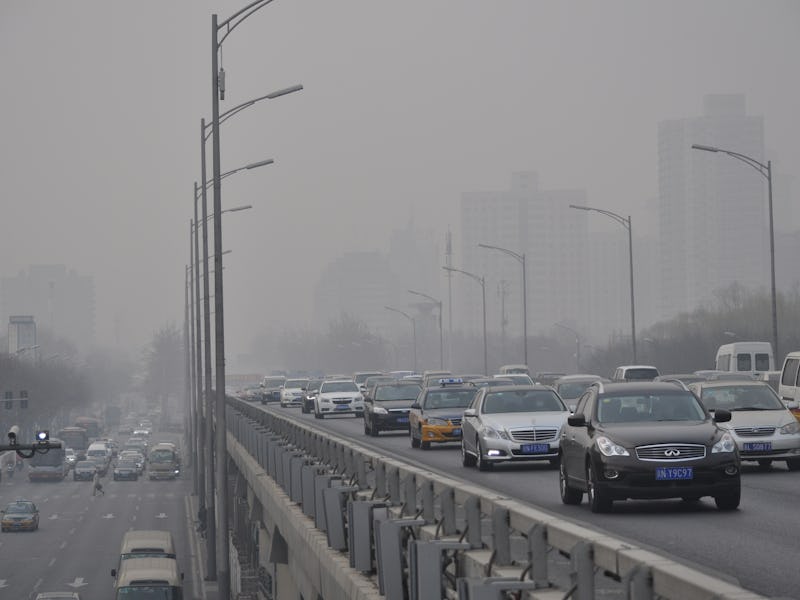Heat, Haze, and Hay Fever Will Ruin Your Future Summers
Climate change really is the worst.

Summers are going from a time of fun in the sun to the season of fiery pits of hell. Without aggressive interventions to limit greenhouse gas emissions, expect future summers to be stifling and sneezy, research warn.
Over recent decades, most parts of the continental United States have experienced five or fewer days of 100-degree heat annually. The exceptions are mostly located in pockets of California, Nevada, Arizona, Kansas, Oklahoma, and Texas. That won’t be true for long, according to an analysis by Climate Central published by the New York Times. By 2060, most of the country will be inflicted with insufferable heat waves. By 2100, almost nowhere will be spared, and Phoenix will lead the country with an impressive 163 days of 100+ degree heat. That’s almost half the year.
Some cities around the world will have the crushing 21st-century heat exacerbated by a surprising source: haze. Surprising new research found that haze can either cool or heat cities, depending mostly on the size of aerosol particles and local climate. The study, published Tuesday in Nature Communications, found that while small haze particles deflect the sun’s rays and have a shading effect, larger particles trap heat and cause localized warming. Worse off were large Chinese cities in semi-arid environments, where road dust, coal burning, and home cooking all contribute to large particulate emissions, resulting in about an additional 1.8 degrees Fahrenheit of warming.
It's getting hot in here.
Cities in the United States and other wealthy nations don’t struggle with the same haze and air pollution issues that you see in parts of Asia, but for big cities in developing countries, the added warming and other health consequences of haze could spell disaster, particularly since the most affected parts of the world are already among the hottest.
Another thing to look forward to: longer and more intense allergy seasons. A new study published Wednesday in Environmental Health Perspectives found that more than twice as many Europeans will suffer seasonal ragweed pollen allergies by the middle of the century. Ragweed is extremely invasive, and a warming climate will result in a longer growing season and an expanded range. The research focused only on Europe, although it’s probably fair to assume that other places where ragweed is a problem will be similarly affected, including North America.
Allergy sufferers everywhere will agree that if any greater reason to aggressively fight climate change exists, they haven’t seen it.